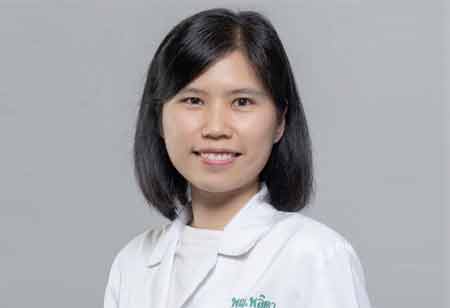Thank you for Subscribing to Healthcare Business Review Weekly Brief

Empowering Healthcare Professionals for the Future: A Holistic Approach to Continuous Learning and Development
Healthcare Business Review
As the healthcare industry continues to evolve at an unprecedented pace, it is crucial for healthcare professionals to adapt and embrace continuous learning and development. At Bumrungrad International Hospital in Bangkok, Thailand, we recognize the importance of equipping our physicians, nurses, and allied health professionals with the skills and knowledge necessary to provide effective and efficient patient care.
One of the key challenges we face is the lack of external obligations for physicians to engage in continuing medical education (CME). Unlike nurses and certain allied health professionals who require continuing education credits to maintain their licenses, physicians in Thailand hold lifelong licenses. To address this issue, our hospital has implemented policies that require physicians to earn a certain number of CME credits to continue their privileges to work in our institution. We believe that staying up-to-date with the rapidly changing medical knowledge is essential for providing the best possible care to our patients.
"To ensure the success of our internal training programs, we actively engage experts from various fields to contribute to program development and provide session feedback"
To facilitate continuous learning, we have designed flexible learning formats that cater to the needs of our experienced healthcare professionals. We understand that traditional university-style teaching may not be the most effective approach for those who are currently practicing. Instead, we focus on creating learning contexts that align with and support their daily practice.
In addition to medical knowledge and technical skills, we have found that non-technical skills, such as communication, mutual respect, leadership, empathy, and teamwork, are equally important for healthcare professionals. Over the past decade, we have integrated these skills into our academic activities, recognizing the need to support the overall well-being of our staff and increase satisfaction and patient safety. With the increasing prevalence of burnout in the healthcare industry worldwide, we also provide psychological support and life skills training to help our healthcare personnel thrive both professionally and personally.
One of our most impactful initiatives has been the introduction of "Amazing and Awesome Case Conferences" (A&A) alongside the traditional Morbidity and Mortality case conferences (M&M). While learning from mistakes is crucial to prevent future occurrences, we believe that learning from success and good practices can create a positive learning environment. We encourage our care teams, including physicians, to summarize and share their key success factors in cross-disciplinary and cross-departmental hospital academic sessions. This allows other departments to learn from and adapt these success factors to their own practices.
As we look toward the future, we have identified several key skills and attitudes that the next generation of healthcare professionals must possess. These include:
1. Non-technical skills: a. Communication skills b. Emotional intelligence c. Adaptability and resilience d. Teamwork and collaboration
2. Lifelong learning mindset: a. Curiosity and openness to new ideas b. Proactive seeking of learning opportunities c. Engagement in reflective practice
3. Feedback-driven improvement: a. Willingness to give and receive constructive feedback b. Incorporation of feedback into daily practice c. Continuous quality improvement mindset
4. Career development and support: a. Mentorship programs for new staff b. Career planning and goal-setting c. Leadership development opportunities
To ensure the success of our internal training programs, we actively engage experts from various fields to contribute to program development and provide session feedback. We value input from all stakeholders, including physicians, nurses, allied health professionals, hospital management, and even patients. This collaborative approach ensures that our programs are relevant, practical, and aligned with the needs of our healthcare community.
Furthermore, we have found that showcasing the participation and engagement of each department or unit in academic activities helps foster an academic environment and encourages healthy competition among teams. By recognizing and celebrating the commitment to continuous learning, we motivate our healthcare professionals to actively participate in educational initiatives and share their knowledge with their colleagues.
By fostering these skills and attitudes and creating a supportive learning environment, we aim to cultivate a culture of continuous learning and improvement within our organization. We believe that by investing in the holistic development of our healthcare professionals, we can enhance patient care, increase staff satisfaction, and ultimately build a stronger, more resilient healthcare system for the future.









